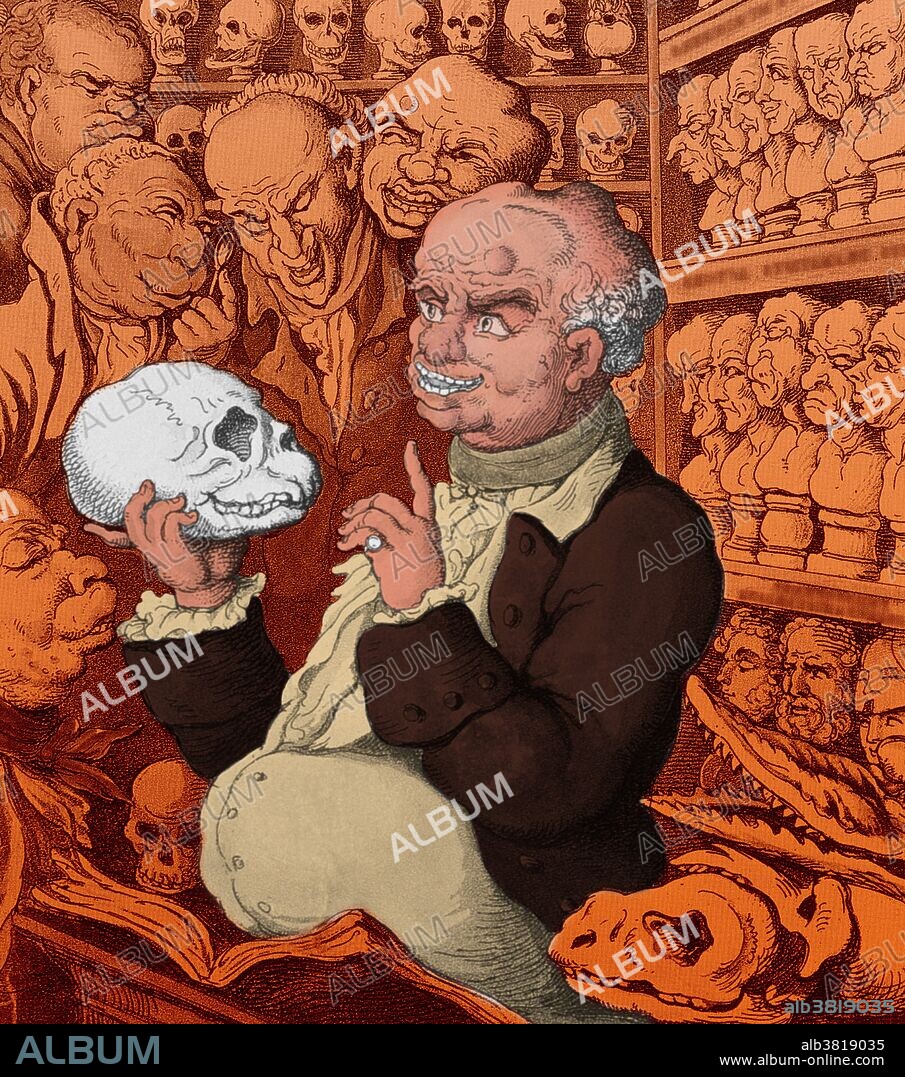alb3819035
Franz Josef Gall, German Phrenologist

|
Ajouter à une autre Lightbox |
|
Ajouter à une autre Lightbox |



Avez-vous déjà un compte? S'identifier
Vous n'avez pas de compte ? S'inscrire
Acheter cette image.
Sélectionnez l'usage:

Titre:
Franz Josef Gall, German Phrenologist
Légende:
Voir la traduction automatique
Caricature of Gall showing a skull to a group of his followers. Franz Josef Gall (March 9, 1758 - August 22, 1828) was a neuroanatomist, physiologist, and founder of phrenology. His contributions to the field of neuropsychology were controversial at the time and now widely referred to as pseudoscience. Based on his early observations about the skull sizes and facial features of his classmates, Gall developed the theory of Organology and the method of Cranioscopy that would later be known as Phrenology. His version of Organology states that the mind is a collection of independent entities housed within the brain. Cranioscopy is a method to determine the personality and development of mental and moral faculties on the basis of the external shape of the skull. His study of phrenology helped establish psychology as a science, contributed to the emergence of the naturalistic approach to the study of man, and played an important part in the development of evolutionist theories, anthropology, and sociology. He died in 1828, at the age of 70.
Crédit:
Album / Science Source / New York Public Library
Autorisations:
Modèle: Non - Propriété: Non
Questions sur les droits?
Questions sur les droits?
Taille de l'image:
3172 x 3588 px | 32.6 MB
Taille d'impression:
26.9 x 30.4 cm | 10.6 x 12.0 in (300 dpi)
Mots clés:
 Pinterest
Pinterest Twitter
Twitter Facebook
Facebook Copier le lien
Copier le lien Email
Email
